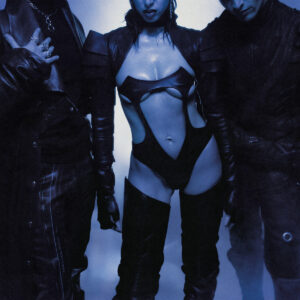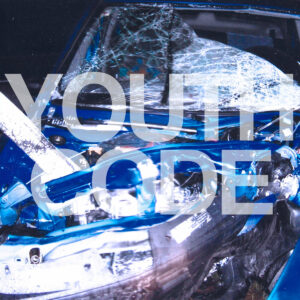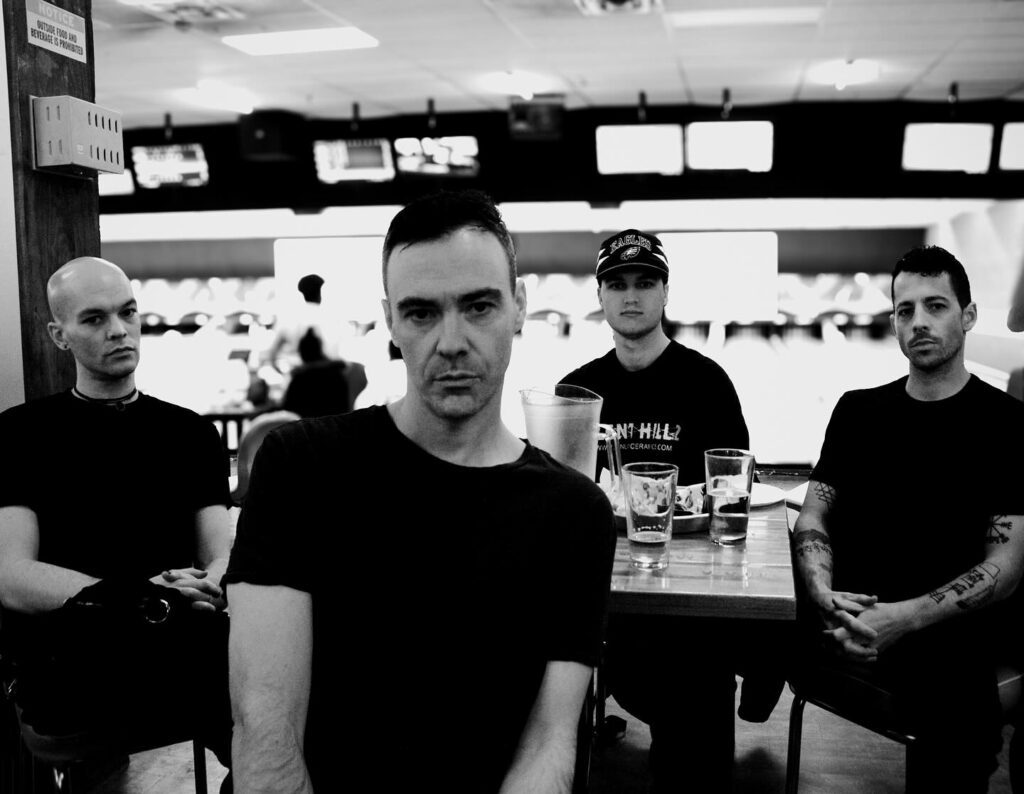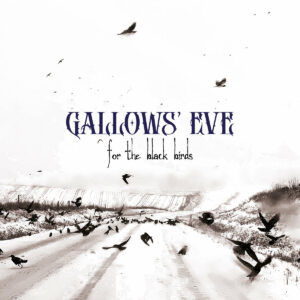Annnnnd we’re back. With Bruce’s return from his ancestral homeland, and Alex emerging from a sweat induced coma brought on by some unseasonably warm Vancouver weather, the mothership that is www.idieyoudie.com will resume our normal posting schedule after this slightly shortened week. We hope you didn’t miss us too much (we hope you missed us at least a little though), and while we did have plenty of podcasts during the break in written content featuring the likes of Psyched, Bootblacks, and Jason Pettigrew, there’s always something nice about doing the thing that brought us to the dance: writing about new music from the world of Our Thing. And speaking of which, we got a fresh batch of Tracks for your pleasure right below. Enjoy!

Pixel Grip at their most them
Pixel Grip, “Reason to Stay”
Chicago trio Pixel Grip have been on an absolute tear with their recent singles, between the high-key dramatic groove of “I Bet You Do” to the bump-and-ground-to-dust of “Stamina” and the almost sweet uplift of “Split”. Their most recent missive is “Reason to Stay”, a track that finds them exploring both their softer emotional side and their righteous anger in equal measure; the cut starts with a typically funky bassline and vocalist Rita Lukea showing some vulnerability before launching into a cutting attack on someone who pushed her too far. New album has been a long wait, but if the whole lives up to the songs we’ve heard so far, it’s gonna be a burner.
Reason to Stay by Pixel Grip
Rhys Fulber feat. Barkosina, “Only Love Will Save Us”
Rhys Fulber (you don’t need us to run down the man’s credits, you know who he is) has made a real career of doing industrial techno under his own name in recent years, applying much of the programming and sound design that has influenced generations of artists to a genre where he can explore his brutalist tendencies in full. The singles from his Artoffact debut Memory Impulse Autonomy has thus far dipped into some territory that Fulber hasn’t necessarily touched on in his solo productions thus far, finding a nice balance between melodics and vocals and his pounding drums and programming – check out “Only Love Will Save Us”, where the voice of Years of Denials’ Barkosina inhabits an instrumental that is both propulsive and emotive, steadfast and bold without giving up on sincerity and emotion.
Memory Impulse Autonomy by Rhys Fulber
Slighter feat. Craig Huxtable, “Stories to Tell”
The relationship between Slighter’s Colin Cameron and friend of the site Craig Huxtable of Landscape Body Machine and Ohmelectronic goes back for a few years, a case of two artists finding a commonality in philosophy and complimenting one another’s strengths. New single “Stories to Tell” has the detailed production and highly textured ambience that is synonymous with Slighter, while Huxtable’s vocals move further than ever before into emotive, melodic territory. It’s a combination that puts us in mind of Architect, an unexpected but not at all unwelcome territory for these two to explore together.
Stories To Tell (Single) by Slighter x Craig Joseph Huxtable
ESA, “Pound of Flesh”
Maybe it’s weird to use a descriptor for an act as acerbic and aggressive as ESA, but it’s hard to think of a band that has quite the same batting average when it comes to putting out records that consistently deliver, while pushing the project’s envelope. “Pound of Flesh” from the forthcoming Sounds for Your Happiness is pretty much everything we want from an ESA club track; pounding drum programming, Jamie Blacker’s powerful vocals and some deceptively clever arrangement choices that marry the project’s technoid and rhythmic noise roots to modern bass sounds. Play this loud, it’s worth it.
Sounds for your Happiness by ESA
HIDE, “DEEPER THAN DEATH (here on earth) I DESTROY”
Oh shit, HIDE is back, everyone look busy. Jokes aside, we’ve always been fans of the Chicago-based duo, from their earliest more beat oriented material to their current noisy experimentalism, not far off from power electronics but with the cheap shocks replaced with substantial politic and artistic vitriol. “DEEPER THAN DEATH (here on earth) I DESTROY” is pretty much what we’ve come to expect from HIDE, with screeching loops that are neither formless nor arranged in easy sequence, and the excoriating vocals of Heather Hannoura tearing their way through the din. Something to throw if you’re having a good day and want to ruin it a little, or a bad day and need something to scrape off the filth.
DEEPER THAN DEATH (here on earth) I DESTROY by HIDE
SOFT VEIN, “Here Comes the Rain Again”
When we wrote up the most recent album from California depressive post-punk/darkwave act SOFT VEIN, we noted that the project’s bleak outlook was balanced by mild glimmers of hope. The soon to be released EP From Another Room does a fine job building on those glimpses of a brighter light with some remixes from the likes of Twin Tribes and QUAL, and this quite lovely cover of the Eurhythmics “Here Comes the Rain Again”, a fine subject for the project to take on and that matches their melancholic outlook to a tee.
FROM ANOTHER ROOM (EP) by SOFT VEIN
The post Tracks: June 10th, 2025 appeared first on I Die: You Die.




















